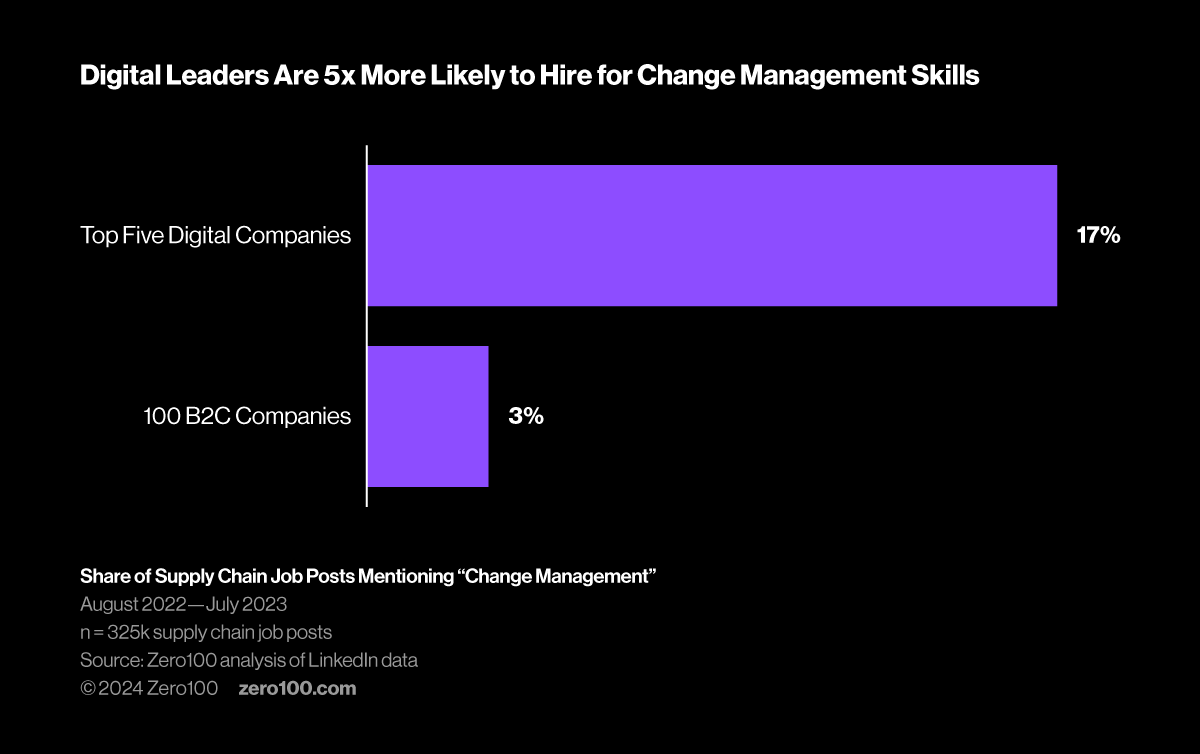

In the Age of Automation, Change Management Is King
Automation can deliver huge business value, but without the right change management strategy, that value is harder to achieve. Here’s how one leader, PepsiCo, is approaching change management.
The Data
-
1
The top ten companies hiring for “automation” or “robotics” plus “change management” are more than twice as accurate in EPS guidance as the remainder.
-
2
In addition, companies further ahead on their digital transformation journey are 5x more likely to be hiring for change management skills.
-
3
Mondelez, BP, and Walmart are targeting “change management” and “automation” most, mentioning these terms in approximately a fifth of their supply chain job posts.
-
4
In job posts mentioning “robotics,” PepsiCo and Walmart require change management skills most often.
The Digital Transformation Unlock
Automation offers huge opportunities for supply chain to drive up productivity, efficiency, and, ultimately, business value. But people are the first-order need when moving from strategy to execution, meaning upskilling, org structures, and hiring for the digital skills that unlock AI are key to digital transformation.
Managing that change, then, is foundational to achieving digital and AI ROI.
Our research shows that companies that deliberately mention “automation” or “robotics” skills in combination with keywords relating to change management in job posts deliver greater EPS accuracy. In addition, companies further ahead on their digital transformation journey are 5x more likely to be hiring for change management skills.

Companies leading the pack on hiring for change management alongside digital skills run the gamut in terms of industries. Mondelez, BP, and Walmart are among the companies in our set targeting “change management” and “automation” most, mentioning the two in approximately a fifth of their supply chain job posts. And when it comes to supply chain job posts mentioning “robotics,” PepsiCo and Walmart require change management skills most frequently.
The PepsiCo Approach
PepsiCo is keeping change management at the fore as it seeks to entrench robotics and automation, along with predictive analytics and AI, across its processes. In practice, this has involved securing a board aligned on priorities and the creation of a change management playbook, a value realization framework, and a scorecard.
When building her team, Chief Transformation Officer Athina Kanioura aimed to include 50% tenured employees, recognizing the importance of legacy knowledge. She also prioritized talent with expertise across multiple areas (a “major” and a “minor”) to help accelerate the rate of change.
The Takeaway:
For automation to deliver real value and results, people are an essential part of the equation. While recruiting and developing the right digital skills to train, manage, and operate machines is critical, thinking beyond just gaining those skills and rather the broader landscape of change is essential.
Define your company priorities, ensure alignment with the C-suite and board, and create a broader change management playbook or framework, which involves a clear people strategy. As part of that strategy, look inward to create a change management team while also looking outward and deliberately hiring for the key skill of change management in combination with digital skills. While we focus on digital skills in the realm of automation here, this holds true for digital skills more broadly, too.
To see a different data cut or to dig deeper into this topic, reach out to our Head of Research Analytics, Cody Stack, at Cody.Stack@zero100.com.
Methodology
Zero100’s proprietary data and analytics are a combined effort between our data scientists and research analysts. We provide data-first insights matched with our own research-backed points of view and bring this analysis to life via real-world case examples being led by supply chain practitioners today.
For this study, we analyzed use cases found in our AI Hub, a proprietary collection of over 600 supply case studies categorized by function. We used an AI-driven methodology to categorize and analyze 3.5M job posts.